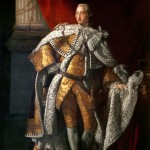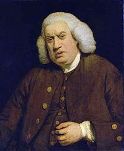A Republican Form of Government
 On September 17, I participated in the Constitution Day program at the Law School. All of the presenters were asked to discuss one part of the United States Constitution that is often overlooked. My choice was the “republican form of government” clause, Article IV Section 4, which reads as follows: “The United States shall guarantee to every state in this Union a Republican Form of Government . . . .”
On September 17, I participated in the Constitution Day program at the Law School. All of the presenters were asked to discuss one part of the United States Constitution that is often overlooked. My choice was the “republican form of government” clause, Article IV Section 4, which reads as follows: “The United States shall guarantee to every state in this Union a Republican Form of Government . . . .”
To call this clause of the Constitution “overlooked” is an understatement. The authors of the Federalist Papers spent little or no time discussing the meaning of this clause. The Supreme Court, when asked to interpret this clause, has generally admitted that it doesn’t have the slightest idea what it means—with the consequence that the Court has rendered the clause irrelevant and left it devoid of meaning. This is a shame because, properly understood, I believe that this clause is one of the most important in the Constitution.
The federal government guarantees every state a Republican form of government. What does the word “republican” mean? It certainly does not refer to a specific political party. Political parties did not even exist in 1789.
Today’s school children are generally taught that the clause is intended to guarantee that state governments use the mechanics of representative democracy over the mechanics of direct democracy. This interpretation is incorrect. While the Framers often wrote of the benefits of a political system whereby voters elected representatives who would make important decisions on their behalf, especially in instances where the geographic territory to be governed was large, the Framers never expressed the opinion that the direct exercise of democracy by the people should be prohibited.
Indeed, this incorrect interpretation of the clause is dangerous because it has led some observers to question the constitutionality of state-wide voter initiatives altogether, such as the ones that regularly go before the voters in California. These types of initiatives may be unwise as a means of using direct democracy to determine the policies of state government. But the use of state-wide initiatives of this type is certainly constitutional.
So if the “Republican form of government” clause does not prohibit the use of direct democracy as a means of state government, what is its purpose? Simply stated, the clause prohibits the people of any state in the Union from amending their state constitution in order to adopt a monarchy or an aristocracy.


 Today is Samuel Johnson’s 300th birthday.
Today is Samuel Johnson’s 300th birthday.